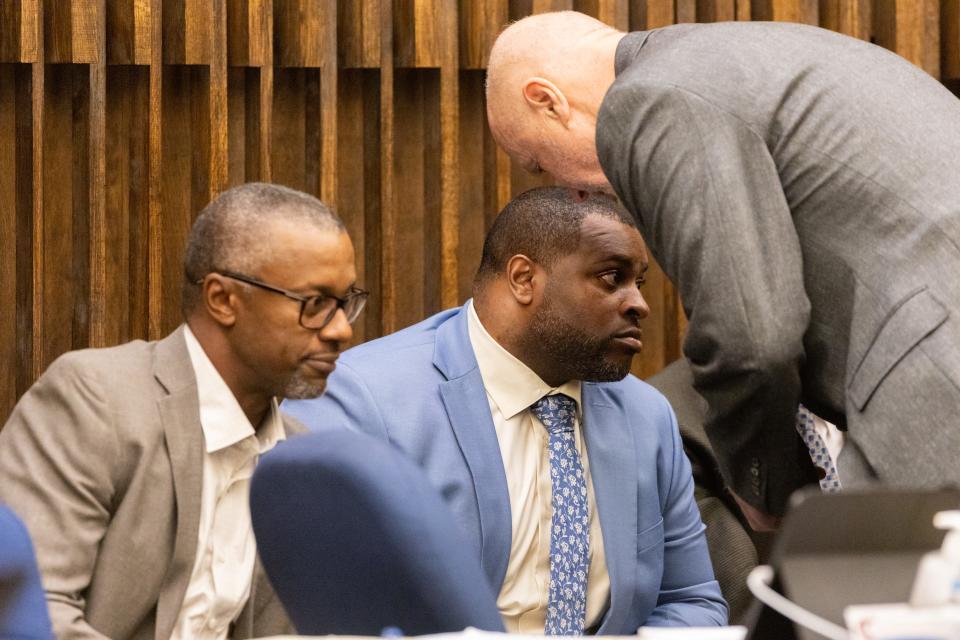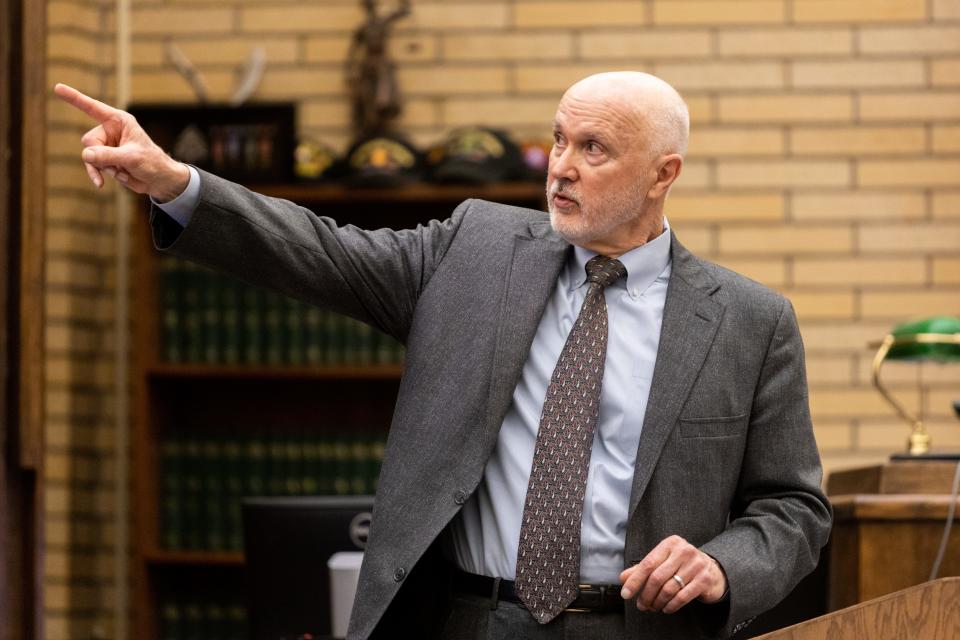Former Ducks football player's injuries result of 'idiotic culture of toughness,' attorney argues
The NCAA has refused for decades to protect athletes from coaches who "are willing to squeeze the last ounce of competitive juice out of student athletes," an attorney for former Oregon Ducks football offensive lineman Doug Brenner argued during opening arguments in a civil trial that began Tuesday.
"The tragic irony in all of this is that it doesn't work," Greg Kafoury said of workouts that push athletes and cause overexertion. "Beating these guys down doesn't make them strong, doesn't make them good players. (It) hurts them and weakens them. But it's all part of this idiotic culture of toughness."
Kafoury and others from his firm are representing Brenner in his lawsuit against the NCAA for $100 million. That lawsuit, currently going through a civil trial before a jury in Lane County Circuit Court, also makes a $25.5 million claim for pain and suffering and past and future medical expenses against the University of Oregon, former football coach Willie Taggart and former strength coach Irele Oderinde stemming from a series of controversial workouts in 2017.

The lawsuit and Brenner's attorneys say players were required to perform hundreds of pushups and up-downs without rest and were denied water during the first day of conditioning as coaches told them to keep at it and said if they stopped, they were quitting on their teammates and the team.
Shortly after he arrived in Eugene in late 2016, Oderinde was suspended for one month without pay following the hospitalization of Brenner, fellow offensive lineman Samuelu Poutasi and tight end Cam McCormick after workouts he led.
All three players were diagnosed with rhabdomyolysis, a potentially life-threatening condition in which muscle tissue breaks down and is secreted through urine. Poutasi filed a similar lawsuit as Brenner but settled just before the trial was set to begin, and McCormick chose not to file a lawsuit.
Attorneys for Brenner and for UO, the former coaches and the NCAA agree the workouts were strenuous and led all three players to be hospitalized with rhabdomyolysis.
But they don't agree who is responsible for the hospitalizations, how much burden falls on Brenner himself, the extent of his injuries and whether it had any impact on his professional football prospects.
Previous coverage:
-Lawsuits bring renewed scrutiny to UO workout response
-Former Ducks football players suing University of Oregon, NCAA for $125 million in damages
Will Stute, one of the NCAA’s lawyers, acknowledged "mistakes were made."
But he and Stephen English — an attorney representing Taggart, Oderinde and UO — argued Brenner shares responsibility for his “serious but temporary” injuries.
An associate athletic trainer requested that Brenner “modify his workouts” after the first day, English said, but declined to do so.
Witnesses, though, will testify that Brenner "ain't quitting for nothing, no matter what," Kafoury said.
He stressed the lawsuit is not about judging people, but rather about policy that fails to protect players from a culture that creates "relentless" pressure to "win at all costs."
"This isn't a good guy-bad guy contest, but there is evidence about conduct, which needs to be understood," Kafoury said.
Yet Stute argued organizations "can't prevent everything with words on the page."
He laid out aspects of the NCAA’s legislative process, which he said ultimately is at the behest of its member schools. The schools, he said, are directly responsible for the health and safety of their athletes.

Even if the NCAA’s guidelines related to rhabdomyolysis were made into bylaws, Stute said, it would make “no difference” in the organization’s ability to prevent college athletes from overexerting themselves.
Over the next few weeks, attorneys on both sides will try to convince jurors their arguments are legitimate as they question medical experts, university and NCAA officials and other witnesses.
The trial will continue at 9 a.m. Tuesday in Lane County Circuit Court.
Contact city government watchdog Megan Banta at mbanta@registerguard.com. Follow her on Twitter @MeganBanta_1.
This article originally appeared on Register-Guard: Attorney for Doug Brenner lambasts NCAA for failing to protect athletes

